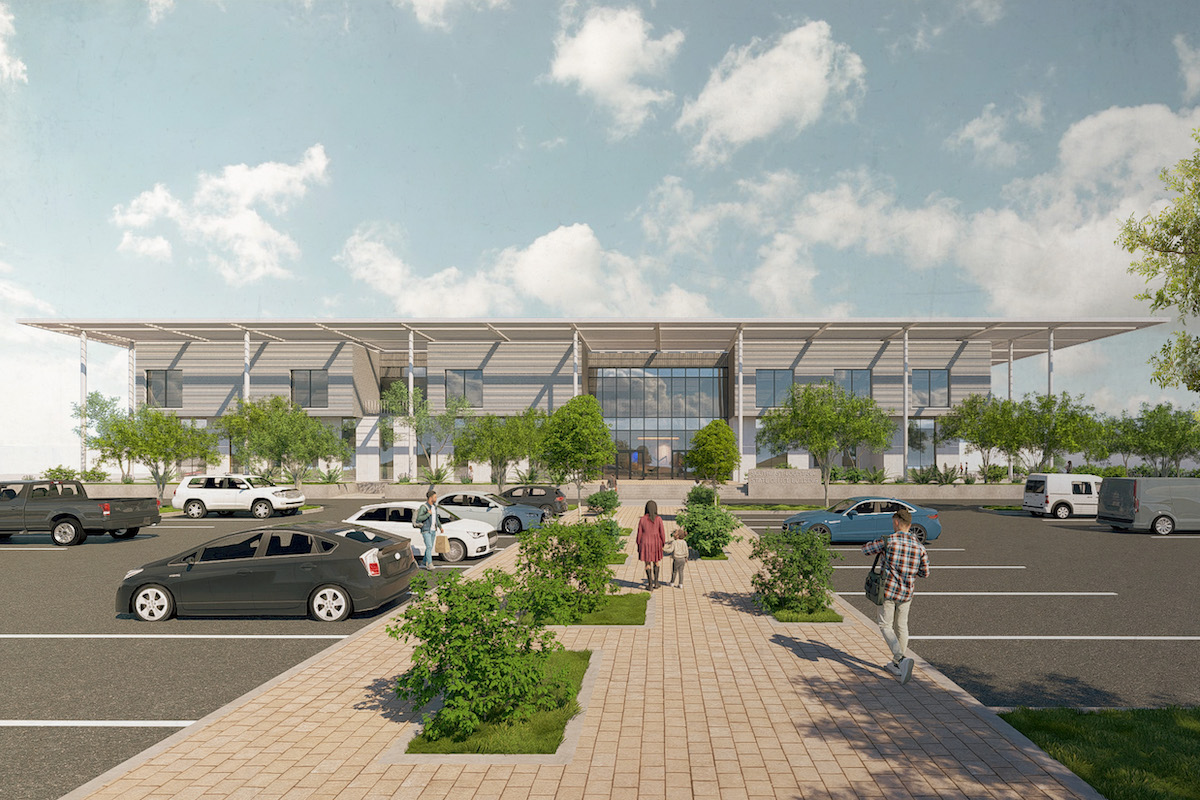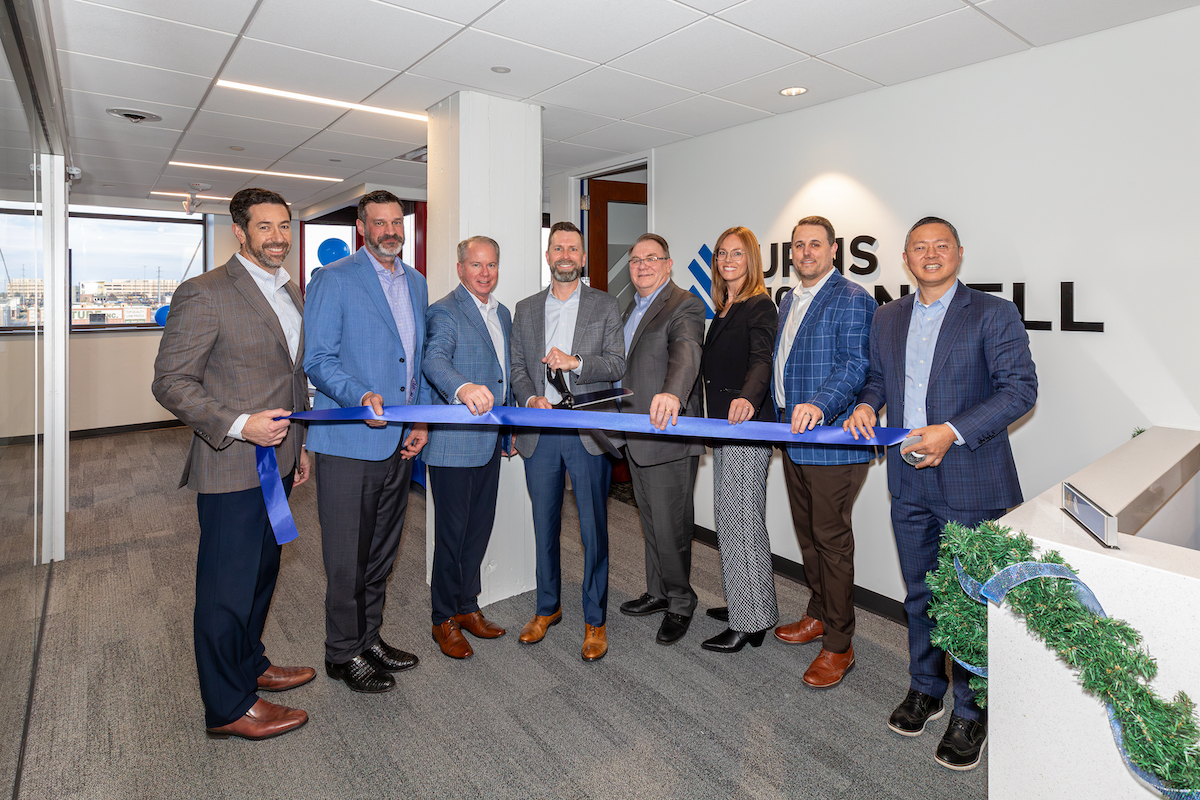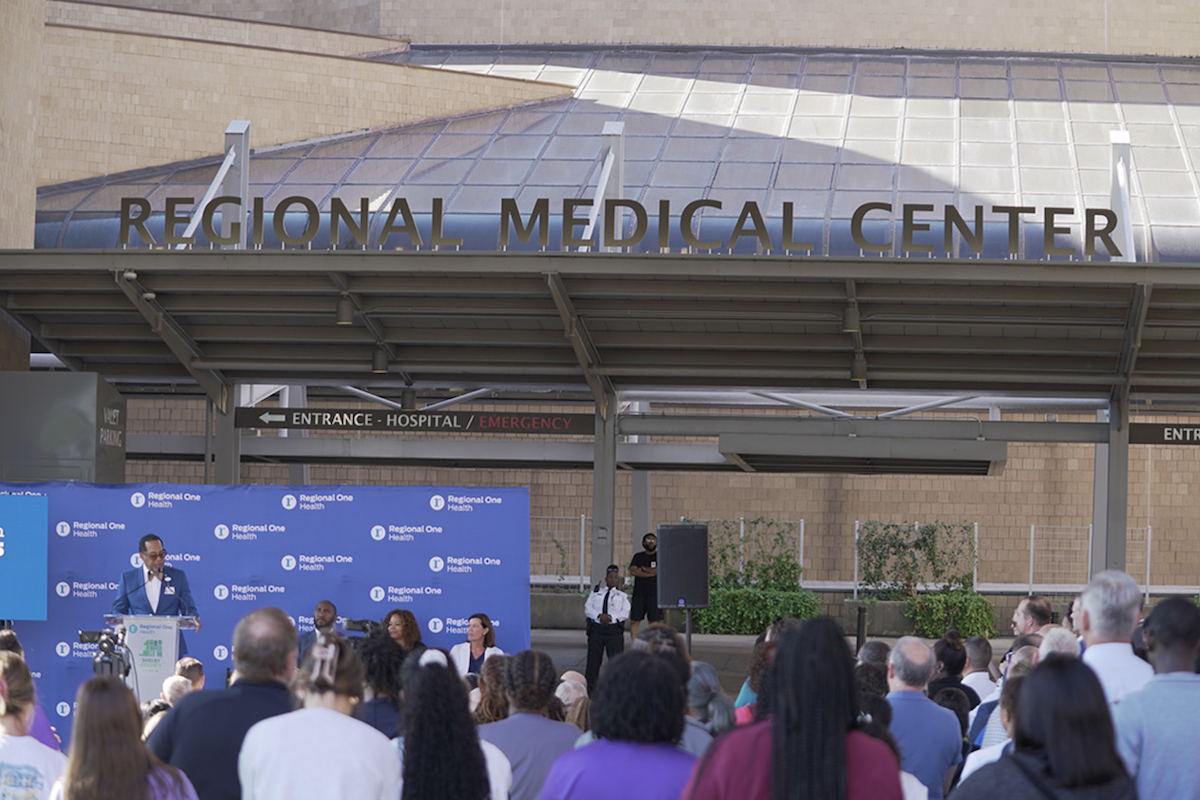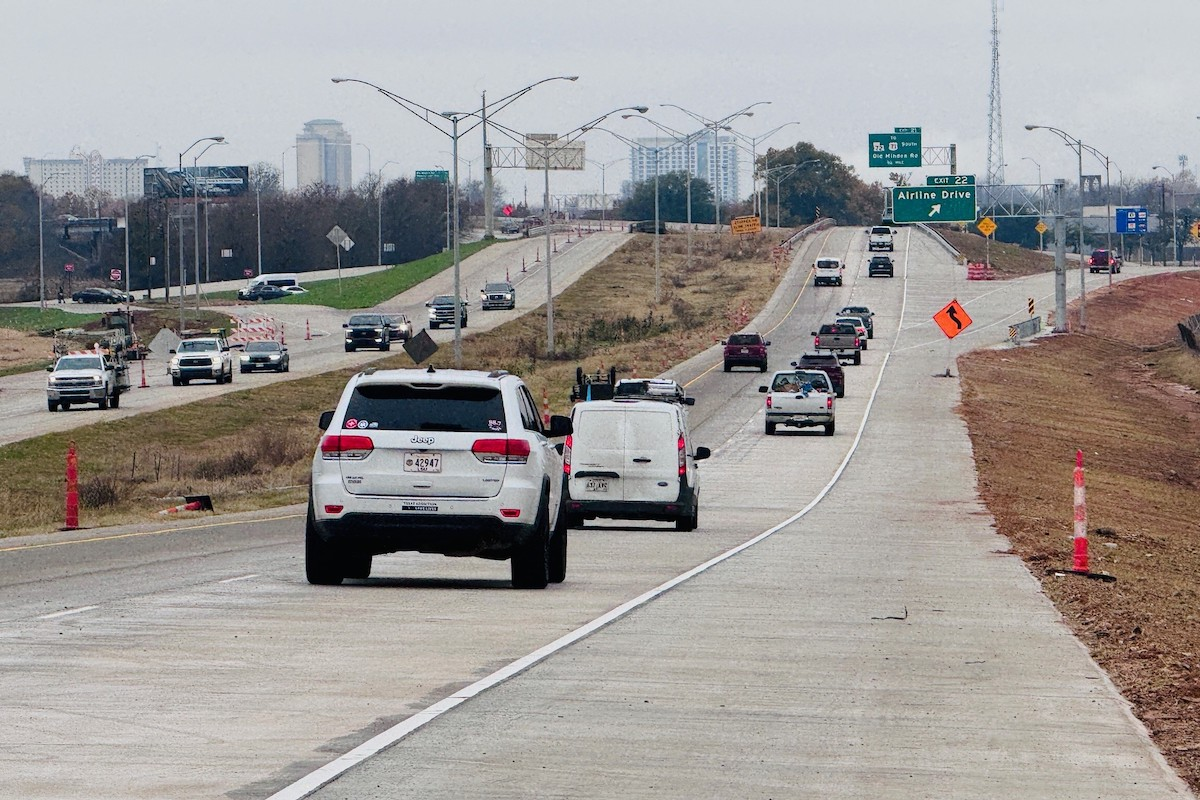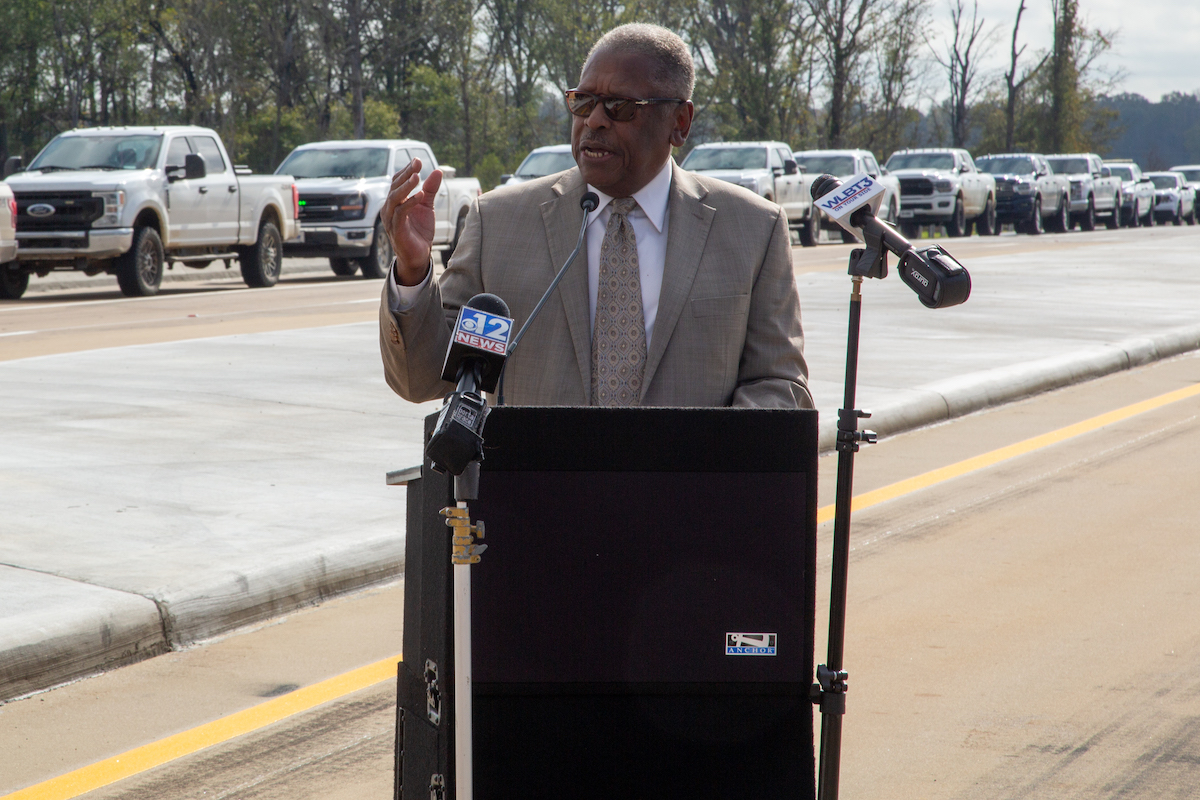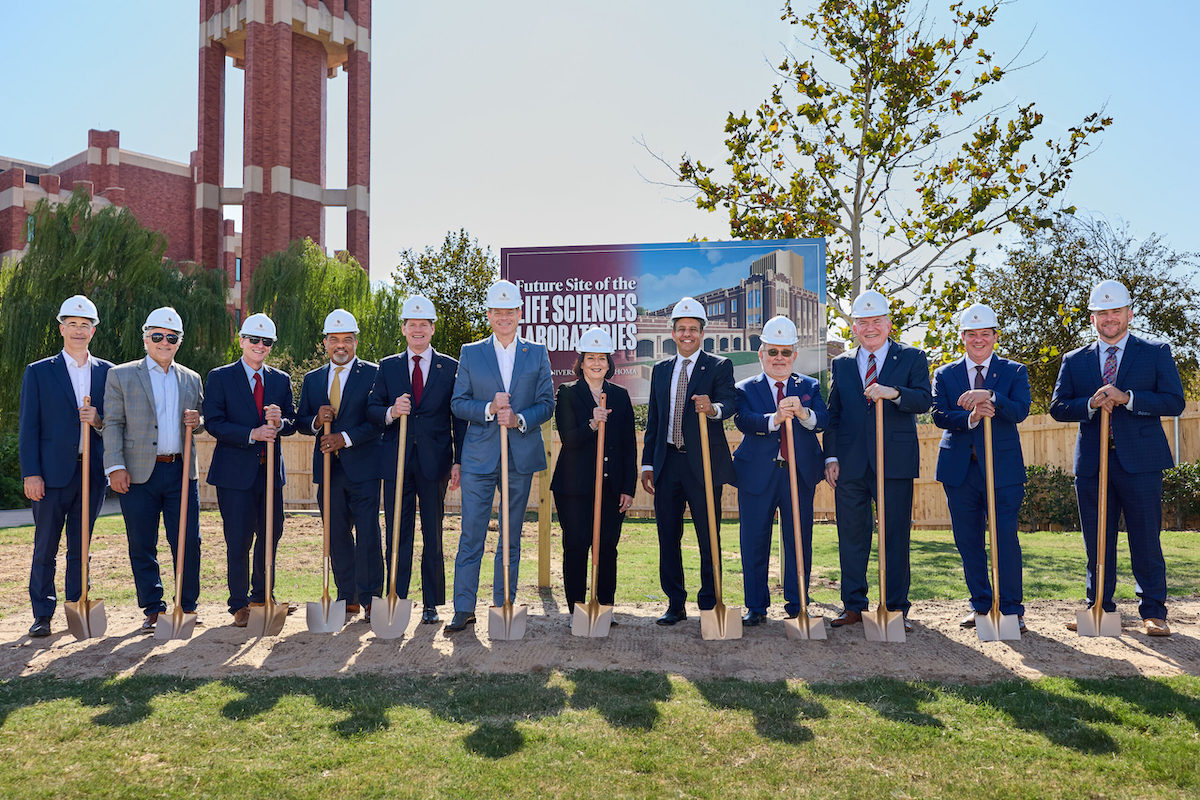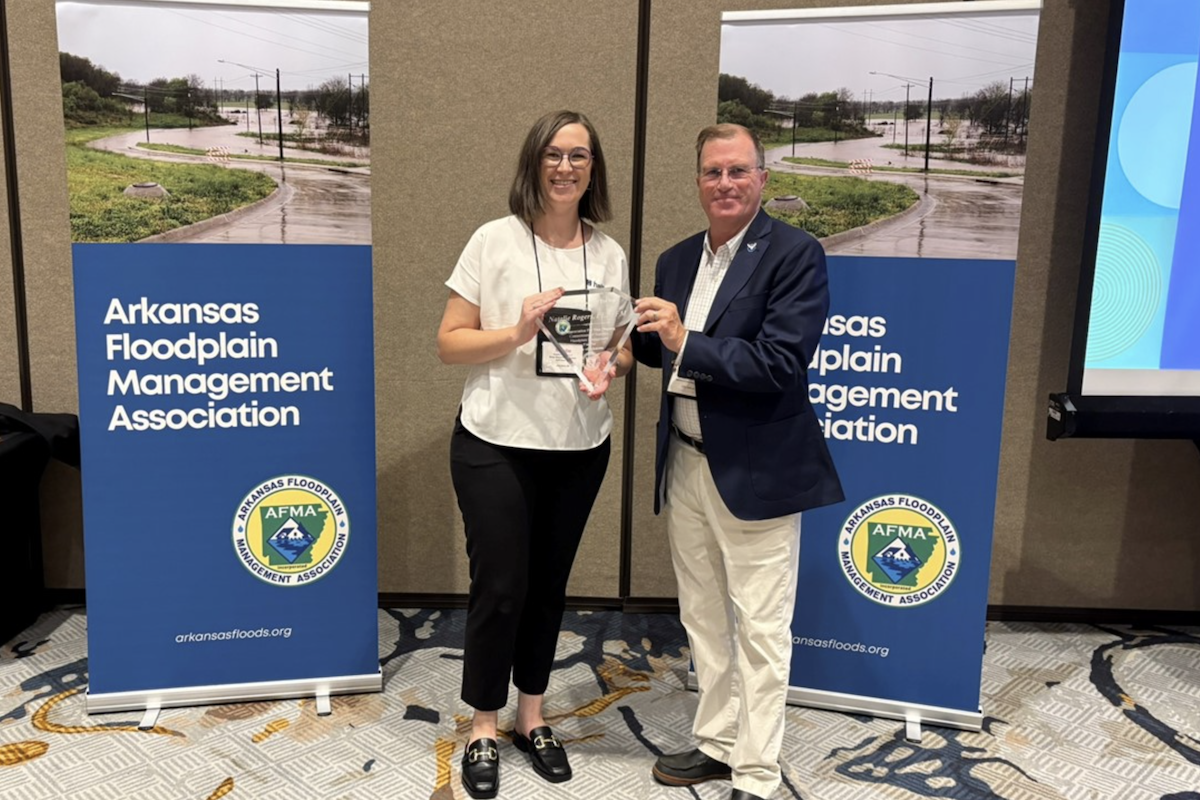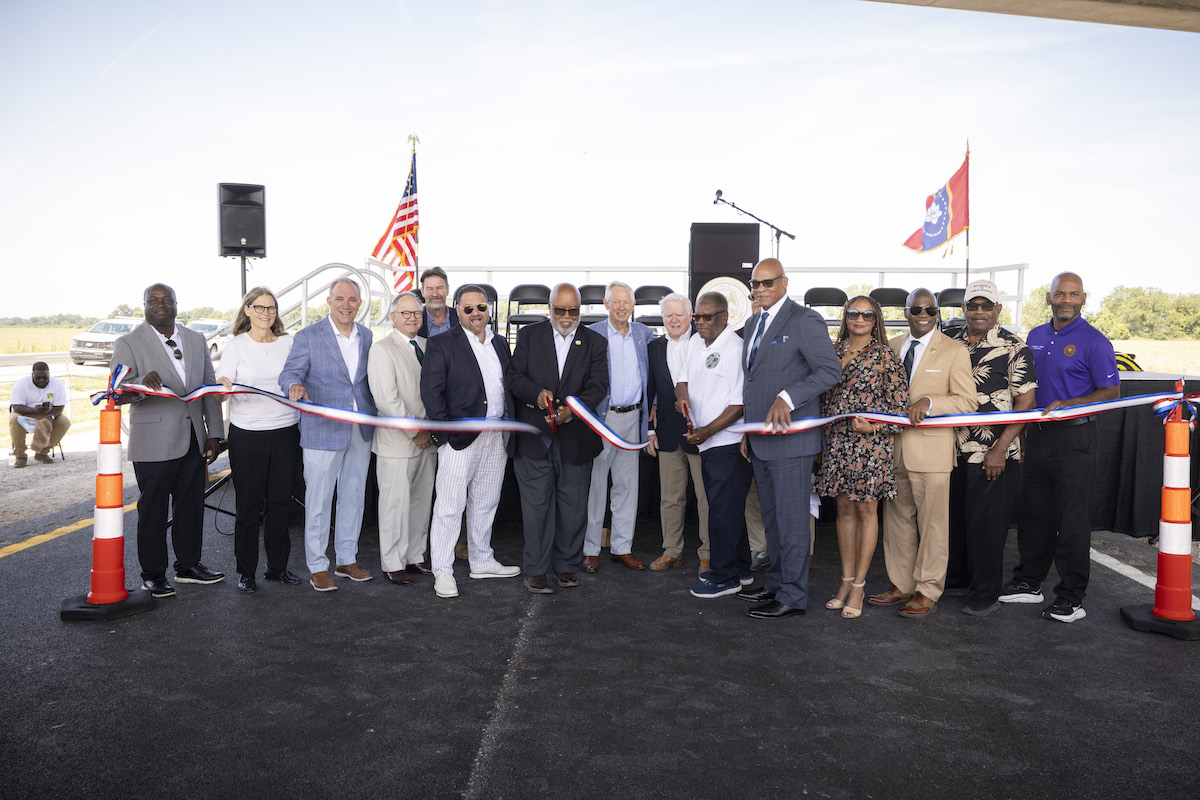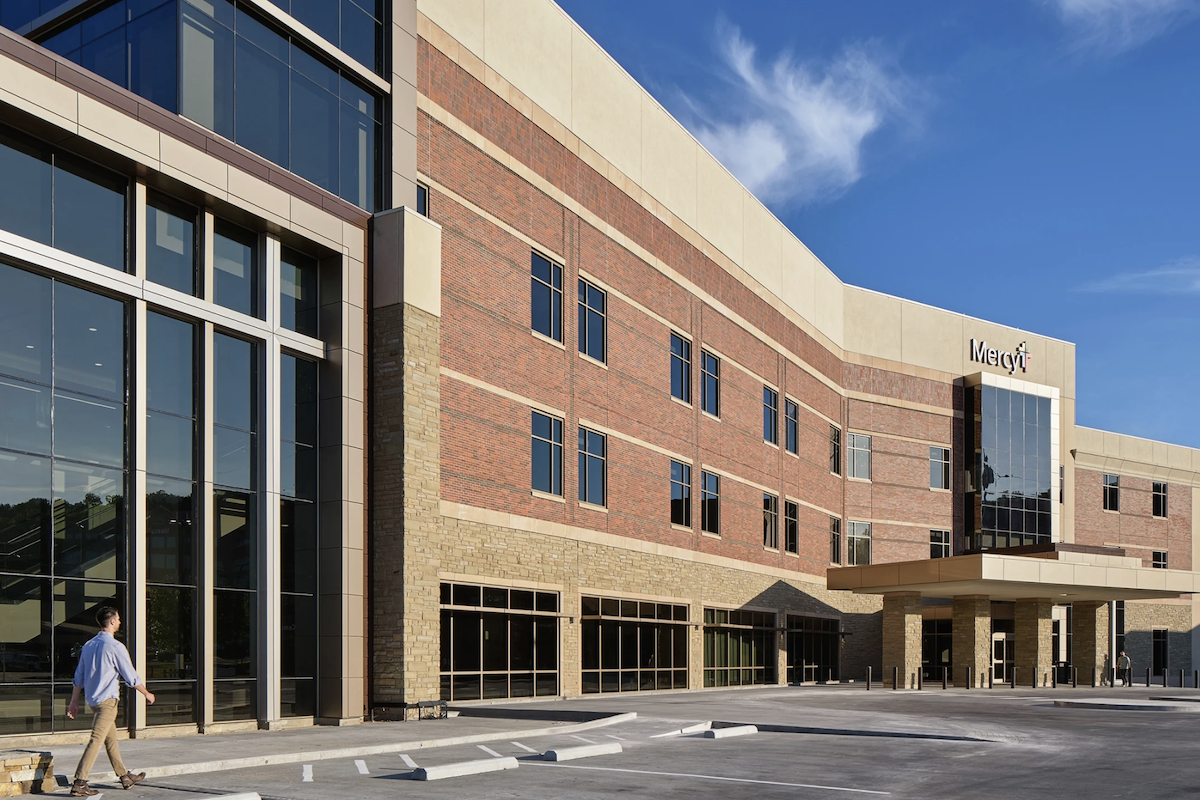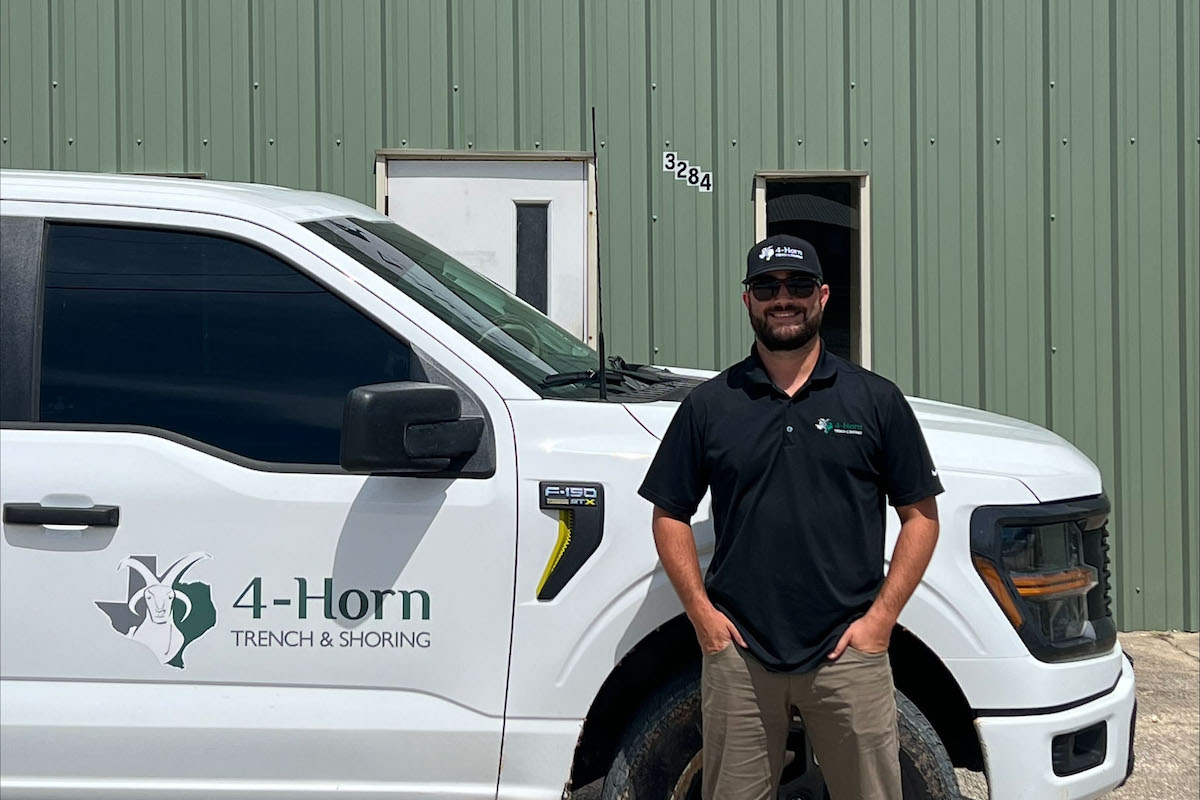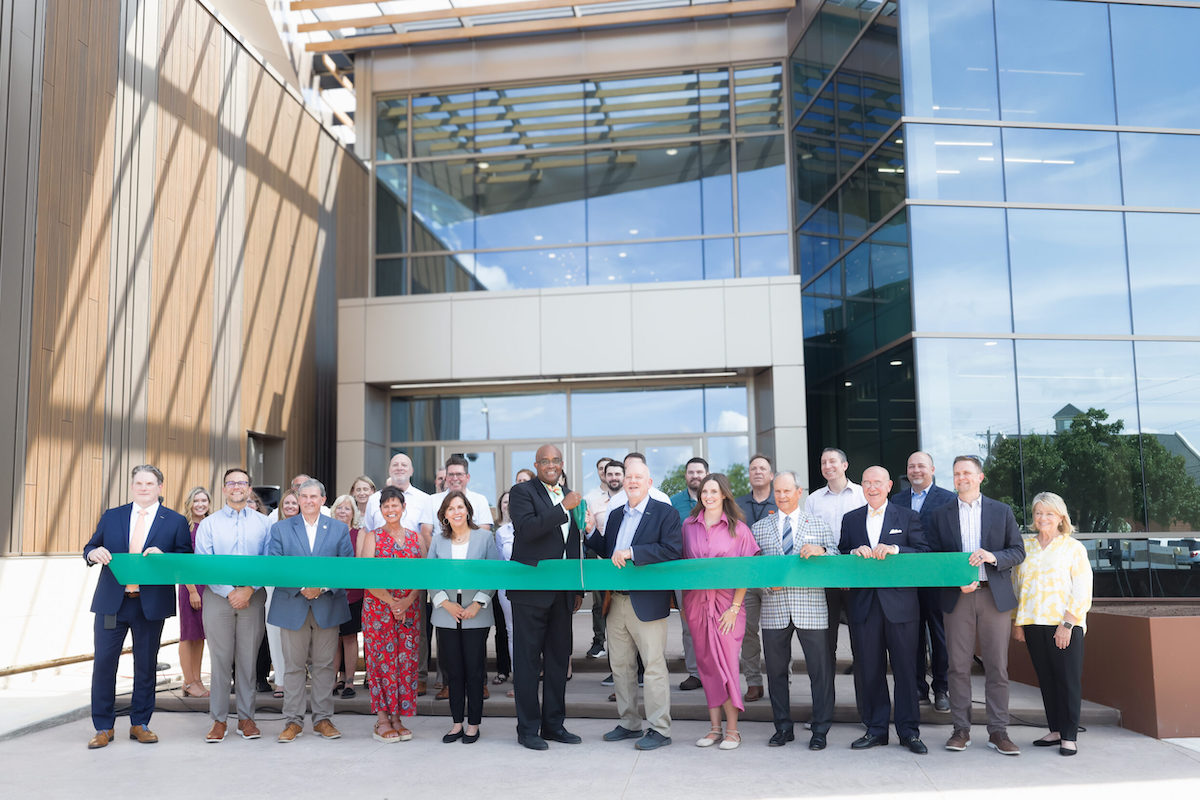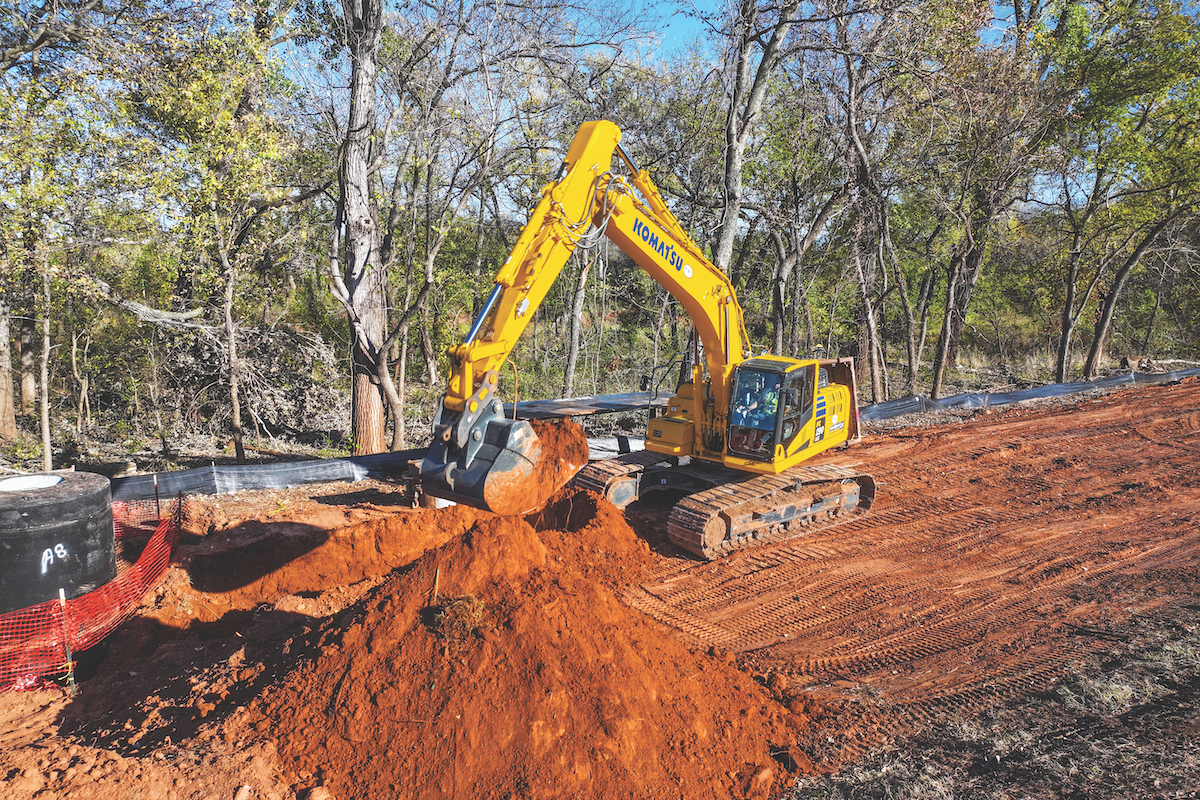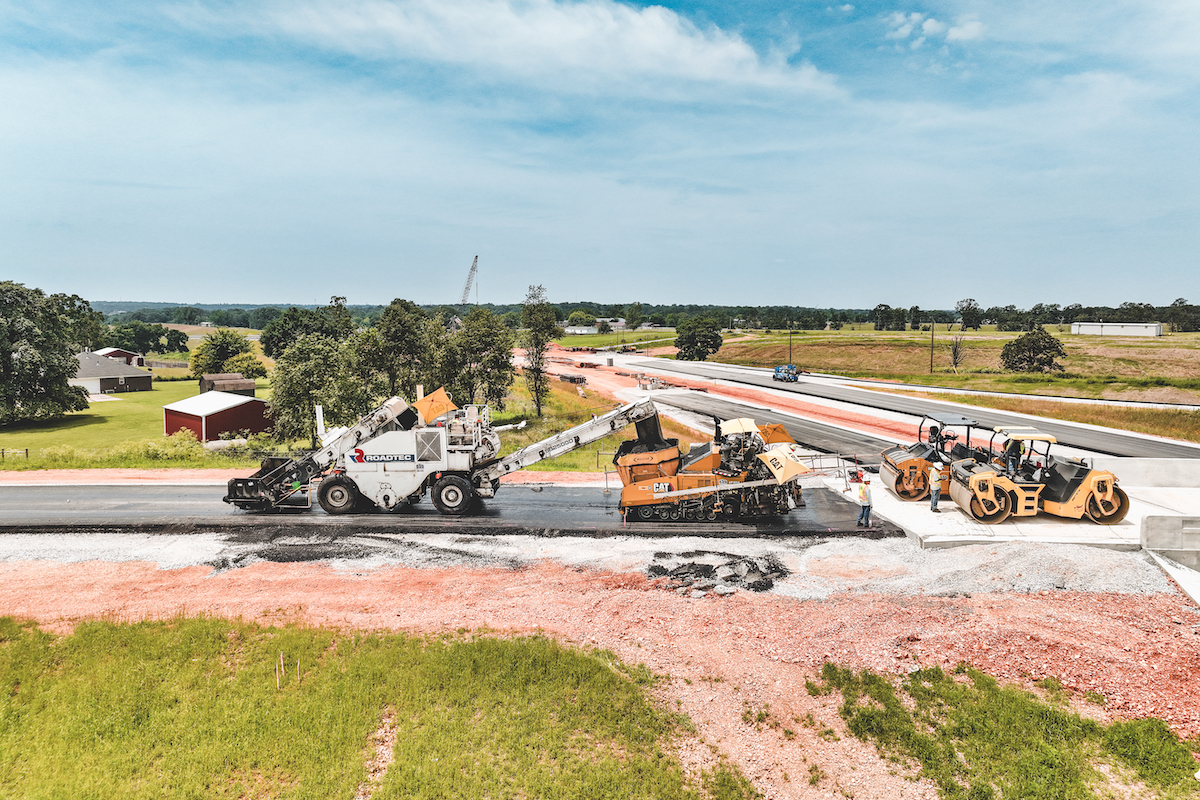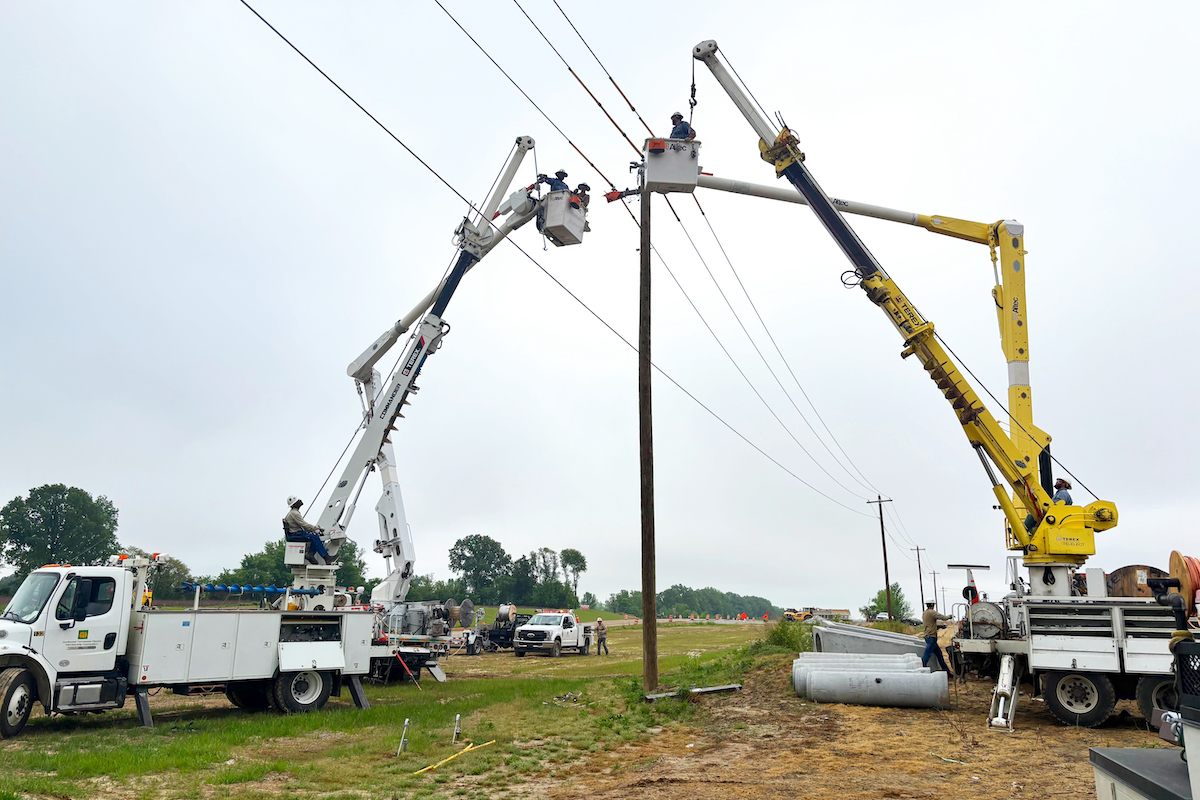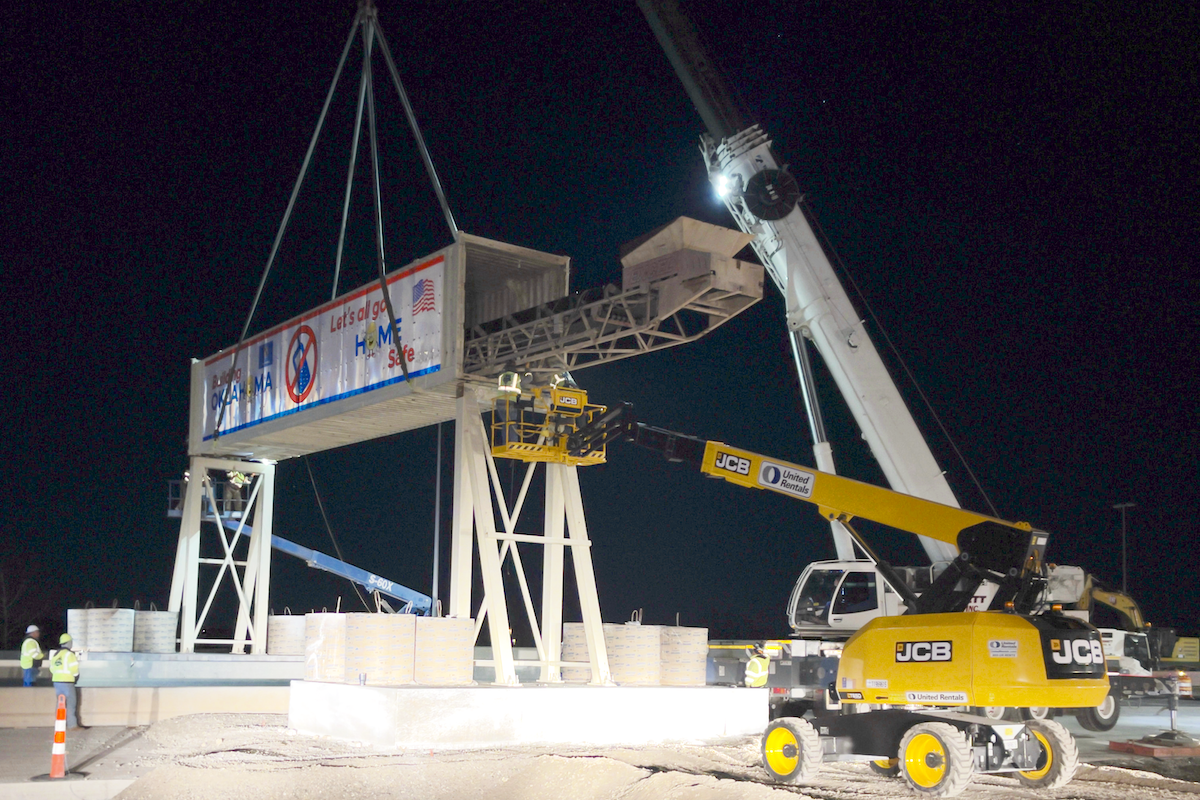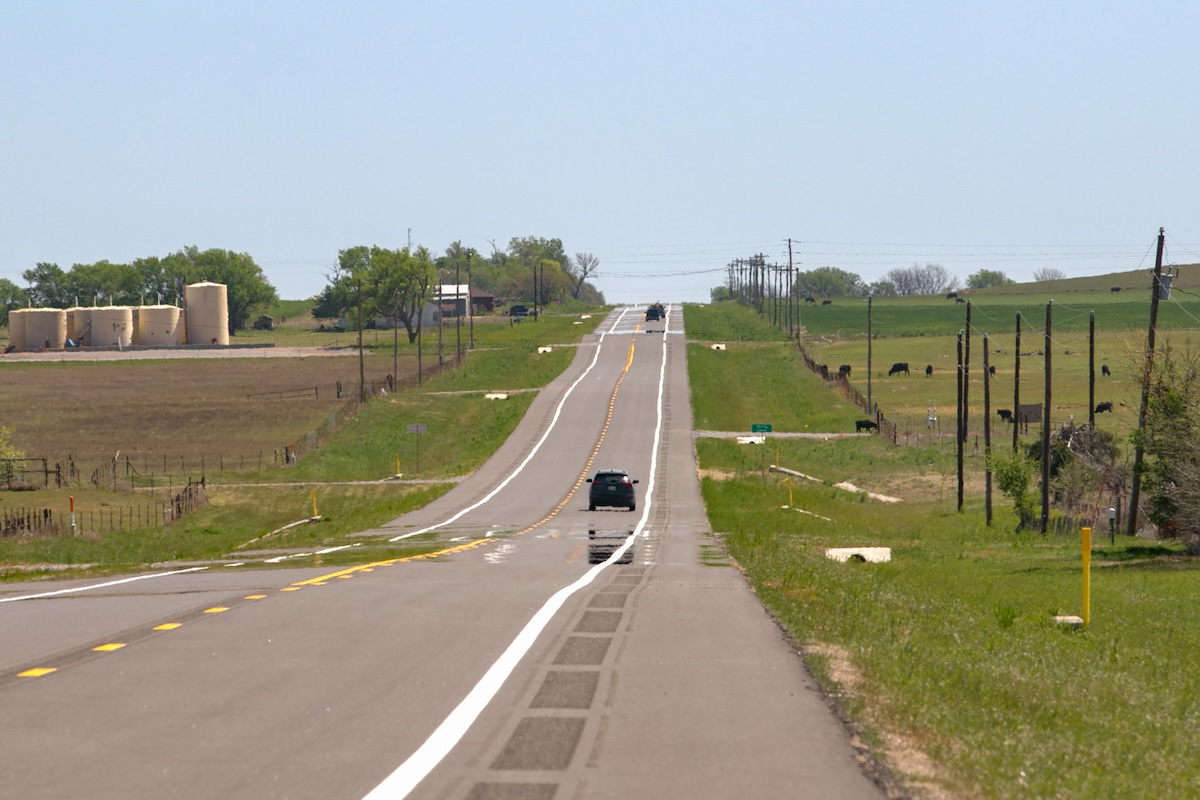Jacksonville Road Betterment (26/147) is phase two, and crews will reconstruct and widen SR 26 to maintain and support the state roadway network. The completed roadway will feature 11-foot travel lanes and 4-foot shoulders. As this phase is being constructed, commuters will be able to use local access and the interchange, as PennDOT will be phasing out ramps that no longer meet design standards.
Finally, phase three – known as the I-80 High Speed Interchange (I-80/B18) – will provide a direct connection between I-99 and I-80 via the construction of high-speed flyover ramps, eliminating the need to travel along SR 26 to access either highway. The stop-controlled intersections will be eliminated with the project and realigned to service local traffic.
Although the project is broken up into three phases, Steve Fantechi, Assistant District Executive for Construction in PennDOT District 2, says, “It was all or nothing. We could not build the I-80 High Speed Interchange without completing and upgrading the local interchange.”
This is because local access was being cut-off during the construction of the high-speed interchange so phase one and phase two needed to be completed to maintain local access. Also, if funding was not secured for the high-speed interchange the construction of phases one and two were not needed.

| Your local ASV dealer |
|---|
| CLM Equipment Co |
Upon completion of phase three, the project will connect two critical highway and freight interstates. In addition, there will be increased safety. “We had lots of crashes in the area due to the functionally obsolete design,” says Tom Zilla, a Principal Transportation Planner with the Centre Region Council of Governments. “Upon completion, we will have fixed the safety issues and brought it up to modern standards of two interstates.”
“When the project was initially scheduled, federal regulations required two lanes of the four-lane highway to be kept open,” says Todd Smeltz, a Principal with engineering firm, Erdman Anthony. “However, now we’re required to maintain four lanes of traffic on I-80.” This required significantly more staged construction.
The juggling also led to other challenges. “The project involves a significant amount of configurations which makes traffic control more difficult,” says Peter Hall, a PennDOT instruction inspector.
As part of the construction along the highway, pipes were replaced. Since the project was done in stages, it was necessary for the team to consider how to maintain drainage and keep the pipes working while only having access to part of the pipe that ran the width of the highway.
Another challenge the team faced was water. The area is home to streams and high-quality watersheds. “There’s lots of infiltration of water which we had to try to control while protecting the local watersheds,” Smeltz says. There’s lots of sinkholes around as well due to the water and the limestone soil.

| Your local Iowa Mold Tooling Co Inc dealer |
|---|
| Nichols Fleet Equipment |
A second environmental concern arose because the area is home to endangered bats, which impacts when the team can cut trees as this impacts the animal’s habitat.
In an effort to eliminate joints and remove potential issues in the future, the team is using a 28-foot-wide paver on both sides of I-80. “We think this will help us get more wear and improve the pavement,” Hall says.
Securing funding for the project has been a challenge. Hence, the stops and starts. “The project initially started in 2000 but was stopped in 2004 because of funding issues and was started again in 2008 but again stopped in 2010,” says Craig Sattesahn, a PennDOT District 2 Project Manager.
Taken up again in 2018, the project was jump started by a $35 million Infrastructure for Rebuilding America (INFRA) grant from the federal government. The grant comes with certain restrictions according to Sattesahn, “We needed to have the project ready for construction in 18 months. So, we went back to old plans and brought them up to standards.”
The funds from the INFRA grant were only able to be used for phase one. Other monies came from a state match as well as additional federal funds. The cost of phase one is $52 million. The expected costs of phase two is $4.3 million and $135 million for phase three.
Serving as the contractor for the phase one project is local contractor, HRI, Inc. The firm has completed multiple projects with PennDOT in the district over the years.

| Your local Takeuchi Mfg Ltd dealer |
|---|
| Kirby-Smith Machinery |
“We have a good working relationship with HRI,” says Brent Lykens, a Construction Services Engineer with PennDOT. “We have bi-weekly project control meetings and when issues come up, we can engage in open and honest dialogues to get matters resolved.”
Lykens credits this with allowing the work to proceed smoothly and keeping things on track.
When the three-phase project is complete, “Travel between I-99, I-80, Route 26, and other local roads will be safer due to reduced congestion and smoother traffic movements and flow,” says Fantechi.

















